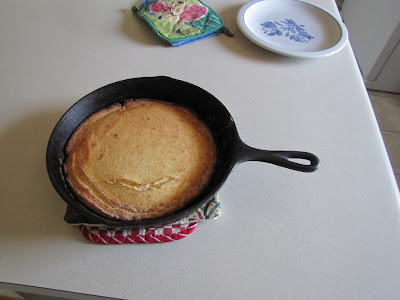 For as long as I remember, I have always eaten black-eyed peas on New Year's Day. It is just what we do 'round here.
For as long as I remember, I have always eaten black-eyed peas on New Year's Day. It is just what we do 'round here.Tradition is important. It's where we came from, even if it doesn't always make sense.
What your dinner consists of may be different from mine, depending on the area of the country you are from. Almost all of them will include black eyed peas. The ubiquitous symbol for good luck, there are many pots boiling right now, hopefully seasoned with a little hog jowl.
This tradition can be traced back to the Civil War. Sherman's troops, stealing and looting every farmhouse and homestead, thought themselves too superior to eat black eyed peas. These peas were first grown as a feed crop for animals and slaves, so the men in blue left the peas in the field. I'm sure the women and children and old men were grateful for anything to eat after their beef and chicken and fruit were stolen.
Some put a penny or dime in their pot of black eyed peas. Tradition has it that the person who gets it in their serving will be the luckiest during the new year. Of course, they could swallow it and choke and croak, which doesn't seem all that lucky to me. To be safe, a person should eat at least 365 peas, one for each day of the new year.
Greens insure prosperity and can be anything from turnip greens, collards, or cabbage. Each bite of greens is said to be equal to $1000.
 Corn bread represents good fortune because it looks like gold. Besides, who would want peas and turnip greens without corn bread?
Corn bread represents good fortune because it looks like gold. Besides, who would want peas and turnip greens without corn bread?I don't believe in luck. I prefer tried and true promises from God like 'you reap what you sow' and 'there shall be showers of blessings'. Much more reliable than a penny in the peas.
Matthew 5:1-12
I have eaten many black-eyed peas on new years but never heard about the penny in the pot.
ReplyDeleteThe things I learn here!!!!!!!!!!!!!!!